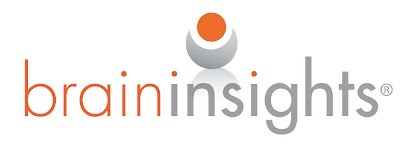I know holiday shopping with me can be frustrating and difficult at times. I really don’t want to be a problem when you take me along. I realize you have a lot to do and you want me to be good so you can get it all done, but, my brain doesn’t always allow me to be perfect. I do like when you take me with you because my brain is curious and I get to see new things. I also love being with you!
So here are some ideas I have so we can have a good time together!
My brain doesn’t like to be bored and it also doesn’t like to be over stimulated. I need interesting things to keep it entertained, but if I get too much stimulation I will need you to help me to relax. My brain is not good at this on my own yet.
(3 -6 year olds)
- Give me a coupon with a picture on it. Make it a fun “treasure hunt” to find this item as we go through the isles together.
- Have me help you find the items you need by giving me simple directions. For example: Ask me to get the red box or pick the smallest size can, or the item on the bottom shelf.
(1 – 4 year olds)
- While waiting in line, name an item for me to find and point to. Or point to a picture on magazine and have me name it.
(3 – 5 year olds)
- As we turn down a new isle name a color. Have me point out items of that color as we go through the row. Or to add variety, name a shape to look for.
My brain also likes physical activity and using all of the senses. Exploring is how my brain learns. So, I will like touching and trying out things I see. If you guide me to or provide things that are safe to touch this will be best. Much of this is all new to me, and do not realize what might happen if I touch, push or pull on something without your guidance.
(0-3 year olds)
- While we shop give items to try out. Let me feel different textures or hear the sounds items make. Since my brain learns through repetition I may want to do it again and again. Use descriptive words for the textures and sounds I am experiencing too. My brain likes to hear lots of language from you about objects in my world.
(3 – 6 year olds)
- Have me close my eyes and listen to all the sounds. Have me tell you all that I hear.
- Have me help you put items on the counter as you get ready to checkout. We could count together as we do this.
I really like it when you give me positive attention . When we are having fun together I will feel good. My brain will then not react in negative ways to get you to pay attention to me.
(2 – 6 year olds)
- Let me tell you about all that I see and am interested in as we shop. I get excited about all of the new things I am learning and want to share it with you!
(All ages)
- Sing holiday songs with me while we wait in line.
When I am hungry or tired it is more likely you will have to deal with acting out behaviors. I really am not trying to be “bad’, my brain is just reacting to what it needs. My brain is not developed to the point of being able to control how I feel yet. I need you to understand and offer support.
- Bring water and healthy snacks along.
- Begin shopping after everyone has had enough sleep. Plan shopping before my bed time or after my naps.
With all of this in mind, let’s have a wonderful time together! My favorite thing to do is spend fun and loving times with you!
For more brain development ideas for everyday life go to:














